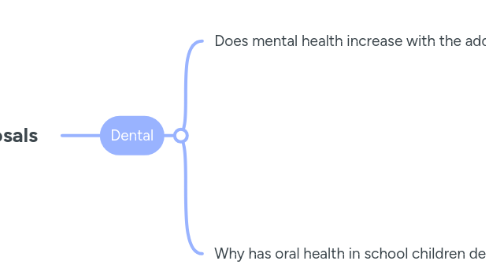
1. Ethic and medicine
1.1. Is abortion right or wrong?
1.1.1. Pro choice
1.1.1.1. Bodily Autonomy: Pro-choice supporters emphasize a woman's right to control her own body and make personal medical decisions.
1.1.1.2. Personhood Debate: They argue that the fetus lacks personhood and thus does not have the same rights as a born human
1.1.1.3. Overriding Factors: Situations like rape, incest, or health risks to the mother are seen as valid reasons for abortion
1.1.1.4. Social and Economic Factors: Many women cite financial hardship, interference with life plans, or lack of support as reasons for seeking an abortion, highlighting the need for choice https://www.pewresearch.org/religion/2022/05/06/social-and-moral-considerations-on-abortion/
1.1.2. Pro life
1.1.2.1. Right to Life: Pro-life advocates argue that life begins at conception, making abortion morally equivalent to murder
1.1.2.2. Human Rights Principle: They believe the fetus has an inherent right to life, which should be protected
1.1.2.3. Moral Status of the Fetus: The fetus is considered a person with full moral rights3.
1.1.3. Religion and ethics
1.1.3.1. Sanctity-of-Life Doctrine: Holds that life is sacred from conception, generally opposing abortion as morally wrong https://academic.oup.com/book/27663/chapter-abstract/197786302?login=false&redirectedFrom=fulltext
1.1.3.2. Moral Rights Theory: Examines personhood and rights, with some interpretations supporting a woman's right to choose based on bodily autonomy https://www.thehastingscenter.org/briefingbook/abortion/
2. Dental
2.1. Does mental health increase with the addition of braces
2.1.1. Discomfort and Social Challenges: Physical discomfort and potential speech difficulties can affect social interactions and confidence, particularly during adolescence
2.1.1.1. Speech Difficulties: The presence of braces can initially disrupt speech, causing issues with pronunciation and leading some to speak less or avoid social interactions
2.1.1.1.1. Self-Consciousness: Many individuals feel self-conscious about their appearance with braces, which can lead to reduced confidence and reluctance to engage in social activities
2.1.2. Positive
2.1.2.1. Improved Communication: Over time, braces can improve speech clarity by aligning teeth properly, enhancing communication skills
2.1.2.2. Social Connections: Braces can become a conversation starter, fostering new friendships and connections with others experiencing similar challenges
2.1.2.3. Improved Self-Image: Orthodontic treatment can enhance mental health by improving body image and reducing anxiety, depression, and sleep disorders
2.1.2.4. Long-Term Benefits: The prospect of achieving a healthy, attractive smile can boost confidence and social functioning over time
2.2. Why has oral health in school children depleted in the UK
2.2.1. Dietary Habits: High consumption of sugary snacks and drinks contributes significantly to tooth decay
2.2.2. Economic Factors: The cost of living crisis has made basic oral hygiene products unaffordable for many families, leading to poor oral health
2.2.3. Lack of Education: Insufficient knowledge about oral hygiene practices among children and caregivers exacerbates the issue
2.2.4. Access to Dental Care: Limited access to dental services, especially in deprived areas, prevents regular check-ups and early intervention.
